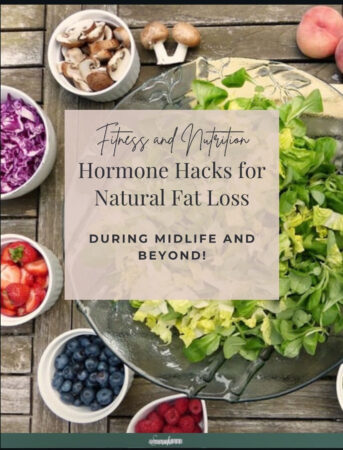If you want to feel like a Babe even while in perimenopause, you’re not alone. Many women experience this transitional phase and find themselves asking, “What is perimenopause?” You hear talk about hormones and know you need to be focusing on regulating them, but what should you focus on first? The three hormones to prioritize are cortisol, progesterone, and estrogen. However, you don’t have to run straight to taking all of the tests or become obsessed with fixing hormones quite yet. There are simpler steps you can take to feel better before diving into hormonal treatments.
What is Perimenopause?
Perimenopause is the transitional phase leading up to menopause, typically occurring in women in their 40s but can start in the late 30s for some. During this decade (yup, it can take up to a decade of “transition”) , hormonal fluctuations bring on all the symptoms you may have heard friends talking about such as hot flashes, mood swings, irregular periods, and weight changes. If you’ve noticed changes in your cycle or mood, you’re likely experiencing this natural shift into perimenopause…welcome to the club!
The Hormones at Play
During perimenopause, several hormones undergo significant changes. Here are the key players:
- Estrogen: This hormone decreases gradually during this time, leading to symptoms like hot flashes and mood changes. However toxins, stress, and environment can cause a back up of estrogen in the liver causing inflammation and impacting the rest of your hormones.
- Progesterone: This calming hormone drops significantly, which is why many women in this stage are struggling with lack of sleep or anxiety and irritability.
- Cortisol: This stress hormone can spike easier due to the body’s changes making stress management feel like a full time job.
- Testosterone: Although often considered a male hormone, women also produce it, and in this season of life its levels can decline, affecting libido and energy.
- Leptin and Ghrelin: These hormones regulate hunger and fullness, and if your other hormones are off it can also impact the balance of these important appetite regulating hormones during perimenopause.
- Insulin: With higher cortisol levels and decreases in natural estrogen production, insulin sensitivity may also be affected, impacting weight management.
There are a lot of changes happening during this time in life, but it is possible to regulate these hormones and feel like yourself again — and mostly importantly it doesn’t have to be complicated.
Before Diving into Hormones, Try This First
Before you jump into hormone testing or hormone therapies, consider making some lifestyle changes that can significantly impact your health.
1. Focus on eating whole foods and a balanced plate 80-90% of the time. This means incorporating plenty of fruits, vegetables, lean proteins, and healthy fats into your diet. Whole foods are packed with nutrients that help reduce inflammation and balance hormones, creating a solid foundation for your overall well-being. This simple switch can make a world of difference in your weight, mood, energy, and hormone function.
2. In addition to your diet, commit to working out five days a week. Aim for three strength-training sessions and two cardio workouts. Strength training not only builds muscle but also enhances metabolism and supports hormonal balance. Cardio, on the other hand, improves cardiovascular health and can help manage stress. Both are essential for reducing inflammation in the body, setting the stage for better hormonal health.
3. Both of these key components are what I teach every day inside my 6-week fitness and nutrition program with FASTer Way. It’s the best place to start if you want to feel better and get your body back on track before diving deeper into hormonal support. Plus, our FW VIP Membership offers ongoing support as you navigate these hormonal changes to educate and empower you for a sustainable balanced lifestyle.




